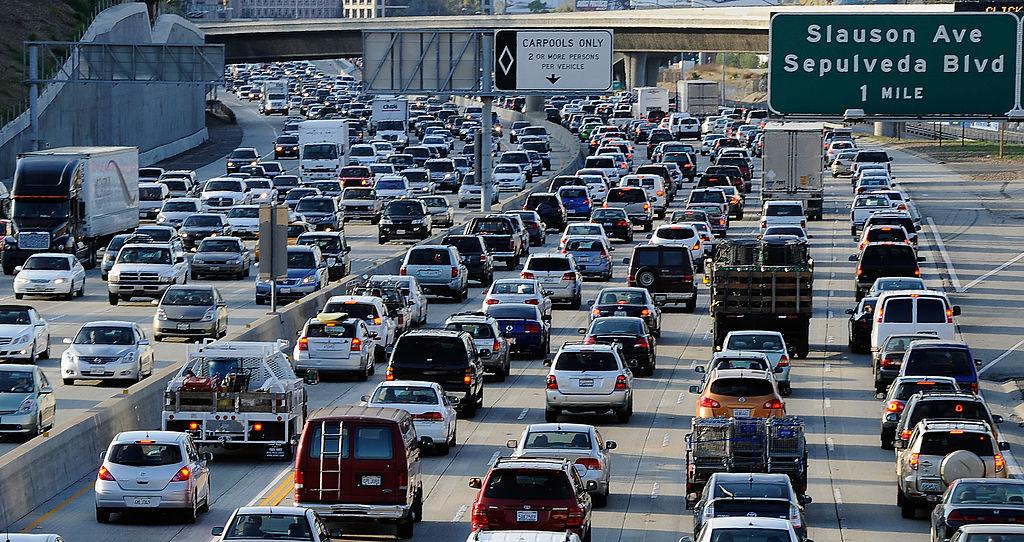LOS ANGELES—Even with a reduction in driving caused by the coronavirus pandemic, Los Angeles had two of the worst traffic corridors in the nation last year and is ranked as the fifth most congested city in the United States, according to an annual study released March 9.
Drivers on the Hollywood (101) Freeway to the Harbor (110) Freeway and the San Diego (405) Freeway to the Glenn Anderson (105) Freeway wasted 19 hours per year at peak hours in congestion, respectively, according to the 2020 Global Traffic Scorecard released by transportation analytics firm Inrix Inc.





